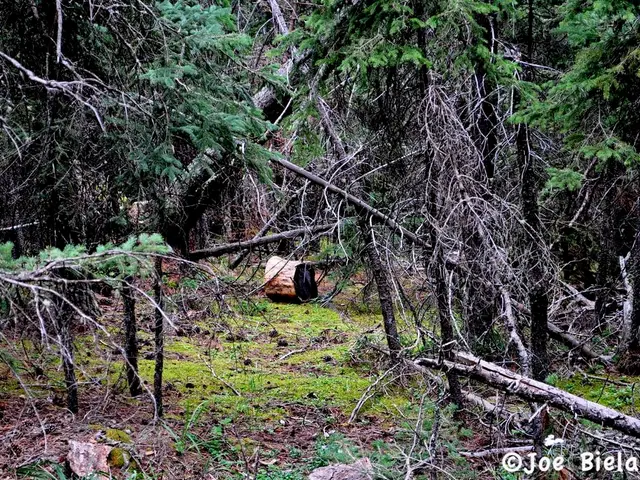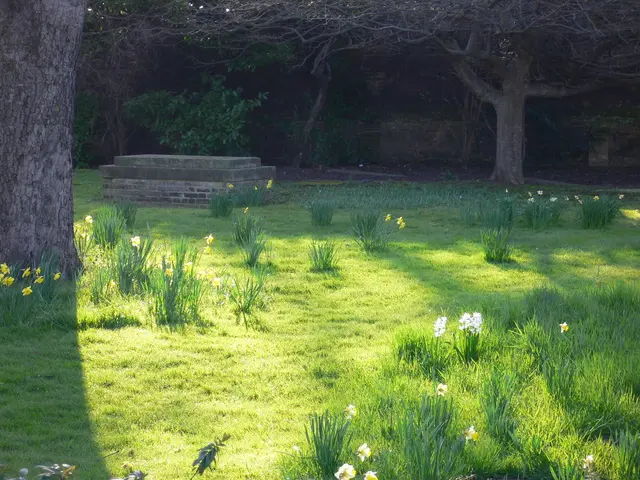You can't get rid of snails from the garden without the aid of chemistry-based products.
Spring has arrived, and with it, the dreaded slugs return to our gardens, much to the chagrin of garden enthusiasts. But fear no more! There's no need to stock up on toxic chemicals to get rid of these slimy intruders. With a few simple, natural methods, you can protect your green paradise from these hungry critters.
First, take advantage of slugs' appetites by setting up lettuce traps. Place a few fresh lettuce leaves in a shady corner of your garden in the evening when slugs are most active. Come morning, you'll likely find a row of slugs feasting on your bait. Remember to check and collect your sleepy guests daily to prevent further damage.
For long-term protection, opt for a slug barrier. These barriers have an angled shape slugs can't surmount. Install them around vegetable beds or flower borders, and bury them at least 10-15 cm deep to block slugs from slipping through from below. A height of about 30 cm ensures that even the tiniest slugs can't crawl over it.
Fragrant herbs are another natural deterrent. Slugs are sensitive to strong smells, so plant rosemary, lavender, sage, or thyme around your vegetable beds or among your plants. Not only will these aromatic plants keep slugs at bay, but they'll also add a delightful scent to your garden that attracts bees and butterflies.
Coffee grounds, often overlooked, can be highly effective against slugs. Simply sprinkle a slight layer of dried coffee grounds around your plants. This will raise the soil's pH slightly, deterring slugs while benefiting your plants. Just make sure not to overdo it, as excessive acidity can harm the soil in the long run.
For those seeking additional methods, consider creating beer or "slug pub" traps. Place containers filled with cheap beer or old orange juice in your garden; the smell will attract slugs, who'll then drown in the liquid. Melon rind traps are also an option—simply place hollowed-out melons near slug-prone plants for a simple, effective trap.
Incorporate wildlife-friendly elements to attract helpful animals such as birds, frogs, toads, and hedgehogs, which all feed on slugs. By providing suitable habitats, you'll help keep the slug population under control.
To completely eradicate slugs, consider using abrasive materials like diatomaceous earth or wool pellets that irritate slugs' delicate bodies, discouraging them from crossing.
Lastly, ensure your soil remains healthy by using well-draining soil and mulching it with well-rotted organic materials such as homemade compost or manure. A healthy soil ecosystem supports robust plant growth, making it less attractive to pesky slugs.
By employing a combination of these methods, you can effectively control slug infestations in your garden and maintain a harmonious ecosystem without resorting to harmful chemicals.
Adopting a home-and-garden lifestyle, you can protect your garden from slugs using natural methods. For example, setting up lettuce traps in the evening and collecting them in the morning can help control the slug population. Long-term protection can be achieved by installing slug barriers around vegetable beds or flower borders.








